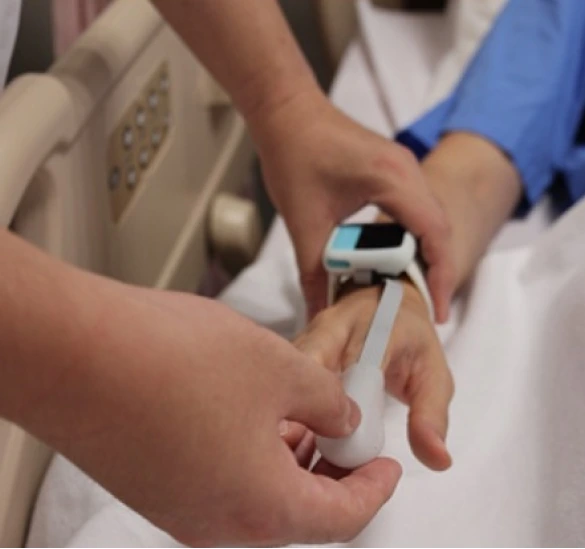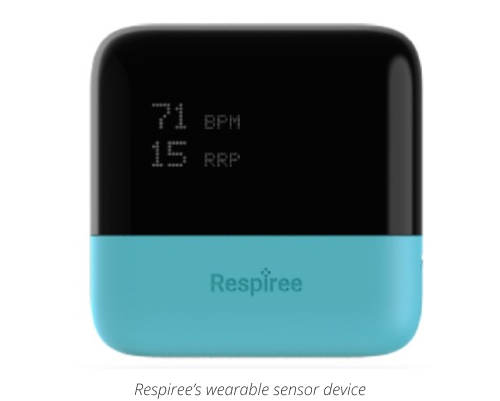Transforming Cardio-Respiratory Healthcare with AI & Wearable Technology
Respiree’s Data-driven Approach to Revolutionising Cardio-Respiratory Monitoring

The objectives
Automating Respiratory Monitoring
Enhancing Predictive Care with AI
Scaling Data for Machine Learning Applications

The impact
Respiree’s partnership with A*STAR has propelled the company to the forefront of cardio-respiratory care innovation. By leveraging AI and wearable sensor technology, Respiree provides healthcare professionals with real-time respiratory data, enabling earlier interventions and significantly improving patient outcomes for conditions like chronic obstructive pulmonary disease (COPD), asthma, and congestive heart failure. This approach addresses a critical need, as respiratory rate is a key indicator of patient deterioration, yet traditionally relies on manual monitoring.
With the support of A*STAR’s Growing Enterprises through Technology Upgrade (GET-Up) programme, Respiree has rapidly advanced from product development to clinical trials, validating its technology in both local and international settings. This includes successful deployments in Singaporean hospitals and recent clinical validation at Massachusetts General Hospital, presented at the American Thoracic Society meeting. By integrating advanced bio-signal processing and AI, Respiree's platform not only monitors but also predicts long-term cardio-respiratory risks, making it a valuable tool for proactive healthcare.
Respiree's AI-enhanced monitoring system has the potential to transform cardio-respiratory care globally. The company is actively working to expand its reach, deploying remote monitoring solutions in hospitals and homes alike, where patients can receive continuous care. This capability is especially relevant in the post-COVID landscape, where remote healthcare and early intervention have become more important than ever.
As Respiree continues to grow, the impact of its technology extends beyond individual patients to the broader healthcare ecosystem. By enabling more accurate and timely interventions, Respiree’s solutions help reduce hospital readmissions and support better allocation of healthcare resources, ultimately improving the quality of care and patient satisfaction on a larger scale.
A*STAR celebrates International Women's Day

From groundbreaking discoveries to cutting-edge research, our researchers are empowering the next generation of female science, technology, engineering and mathematics (STEM) leaders.
Get inspired by our #WomeninSTEM
